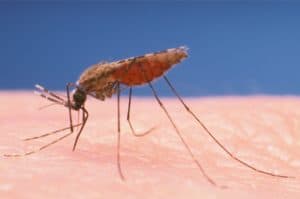Latest news from Datamonitor
pharmafile | June 22, 2007 | News story | Research and Development, Sales and Marketing | NSCLC, Novartis, Pfizer
Novartis receives FDA approval for blood pressure medicine
Novartis has been granted final FDA approval for Exforge, its high blood pressure medicine.
The US approval of Exforge was supported by a clinical programme involving more than 5,000 patients. The FDA had tentatively approved Exforge in December 2006 and has now granted final approval.
Exforge offers two of the most prescribed high blood pressure medicines in a single-tablet form. It combines the active ingredients of an angiotensin receptor blocker – Diovan (valsartan) – and a calcium channel blocker – Norvasc (amlodipine).
In two placebo-controlled trials, Exforge helped up to nine out of 10 patients reach their treatment goal of diastolic blood pressure under 90 mmHg, or more than a 10 mmHg reduction in diastolic blood pressure from baseline levels.
Exforge was approved in January 2007 in the European Union and has already been made available in nine EU countries, including Germany and the UK, with further launches planned.
Oncolys BioPharma and Tacere Therapeutics to develop hepatitis C drug
Oncolys BioPharma and Tacere Therapeutics have entered into a strategic alliance to develop hepatitis C drug TT-033.
Under this agreement, Oncolys has been granted an option to acquire the Asian rights for TT-033, a novel RNA interference (RNAi) based product for the treatment of hepatitis C (HCV), which Oncolys will market as OBP-701. Further, Oncolys has made an equity investment in Tacere of an undisclosed amount.
“Regarding HCV, there are still many patients who have no meaningful cure and there is a definite need for new drugs that are both effective and safe. We believe that OBP-701/TT-033 will enable us to offer new treatments for patients suffering from HCV,” said Yasuo Urata, president and CEO of Oncolys.
TT-033 is a novel therapeutic product containing three separate RNAi elements entrapped in an AAV protein coat. The companies say AAV delivery methods have demonstrated clinical safety and the ability to penetrate hepatocytes (the site of HCV replication) at high levels following a single intravenous administration.
In preclinical animal studies, this “cocktail in one drug” targeted and cleaved the hepatitis C virus itself at three different sites simultaneously without toxicity. The three sequences were chosen to be effective against all genotypes of HCV. Tacere will begin IND-enabling studies on TT-033 shortly and plans to enter phase I clinical studies in late 2008.
Pfizer discontinues lung cancer drug trials
Pharmaceutical giant Pfizer has discontinued a development programme in lung cancer for PF-3512676, an investigational compound, in combination with cytotoxic chemotherapy.
This includes two phase III clinical trials and two phase II clinical trials. Pfizer licensed PF- 3512676 from Coley Pharmaceutical in 2005.
An analysis of the trials by independent data safety monitoring committee (DSMC) found that there was no evidence that the compound produced additional clinical efficacy over that achieved with the standard cytotoxic chemotherapy regimen alone.
The DSMC concluded that the risk-benefit profile did not justify continuation of the trials. Pfizer agreed with the committee’s findings.
The drug, which Bear Stearns predicted would generate sales of $384 million in 2010 if it came to market, is a minor setback for Pfizer, whose shares fell by 50 cents, or 1.9%. Coley, however, was on the receiving end of a 58.25% share fall. According to CNN, the discontinued compound was the company’s most advanced pipeline candidate, and sales would have brought it significant royalty revenue.
Pfizer receives FDA approvable letter for HIV drug
Pfizer has reported that the FDA has issued an approvable letter for maraviroc, which is under review as a therapy for treatment-experienced patients infected with CCR5-tropic HIV-1.
The US-based pharmaceutical company says it will continue its discussions with the FDA to address outstanding questions and finalise the product labeling as soon as possible.
Pfizer says that, to date, more than 2,000 patients worldwide have received or are currently receiving treatment with maraviroc through clinical trials. Pfizer has also established an expanded access programme (EAP) in 30 countries. The EAP is a clinical study that provides maraviroc in countries to patients who have limited treatment options prior to approval.
Pfizer is currently in the process of submitting marketing applications around the world to make maraviroc available globally.
Sea-squirt drug could target cancer tumours
A drug derived from sea-squirt could help reduce and even remove cancer tumours, according to a new study published in The Lancet Oncology.
The sea-squirt derived drug trabectedin resulted in anti-tumour activity in over half of 51 patients studied with a type of soft tissue sarcoma. Two patients saw their tumours disappear completely.
Lead researcher Federica Grosso said that while the drug could not be used to treat other soft tissue cancers, the results offer hope for patients with myxoid liposarcomas.
“If the results of this analysis are reproduced in ongoing prospective studies, myxoid sarcoma would represent a uniquely sensitive subgroup to trabectedin treatment in the heterogeneous family of soft-tissue sarcoma,” the researchers commented.
Related Content

Novartis receives SMC approval for early breast cancer treatment
Novartis has announced that its treatment for early breast cancer, Kisqali (ribociclib), has received approval …

Novartis candidate for Sjögren’s disease presents positive results
Novartis has reported positive results from two phase 3 clinical trials – NEPTUNUS-1 and NEPTUNUS-2 …

First malaria medicine for infants under 4.5kg receives approval
Coartem (artemether-lumefantrine) Baby, or Riamet, has been approved by Swissmedic as the first malaria medicine …






